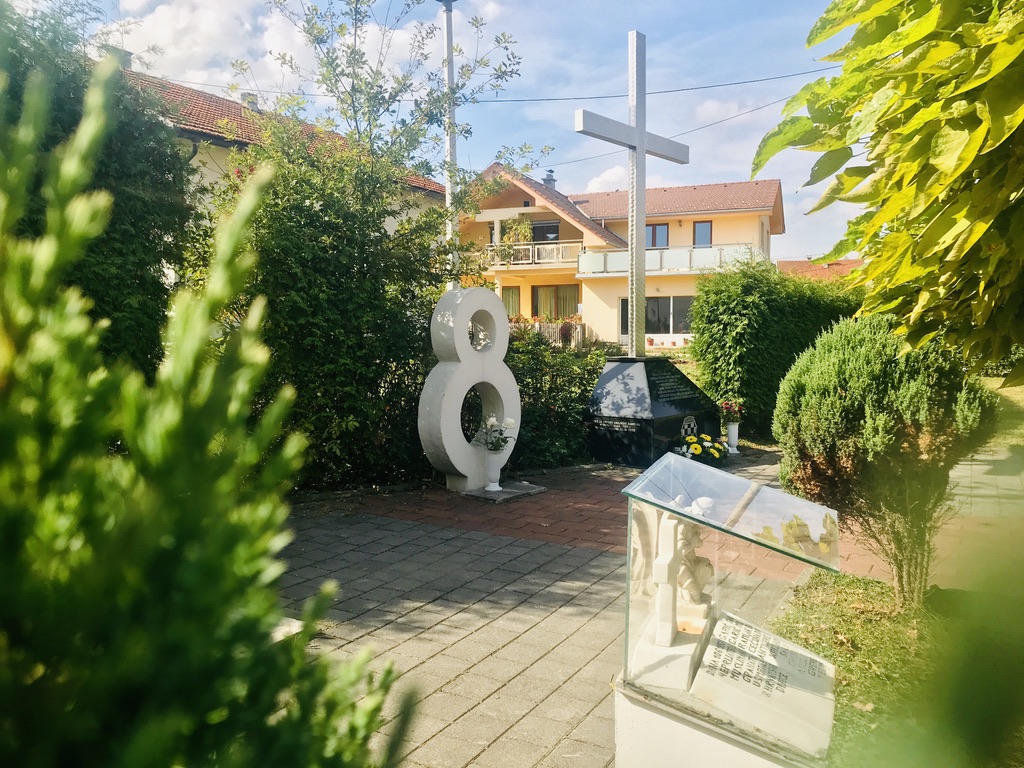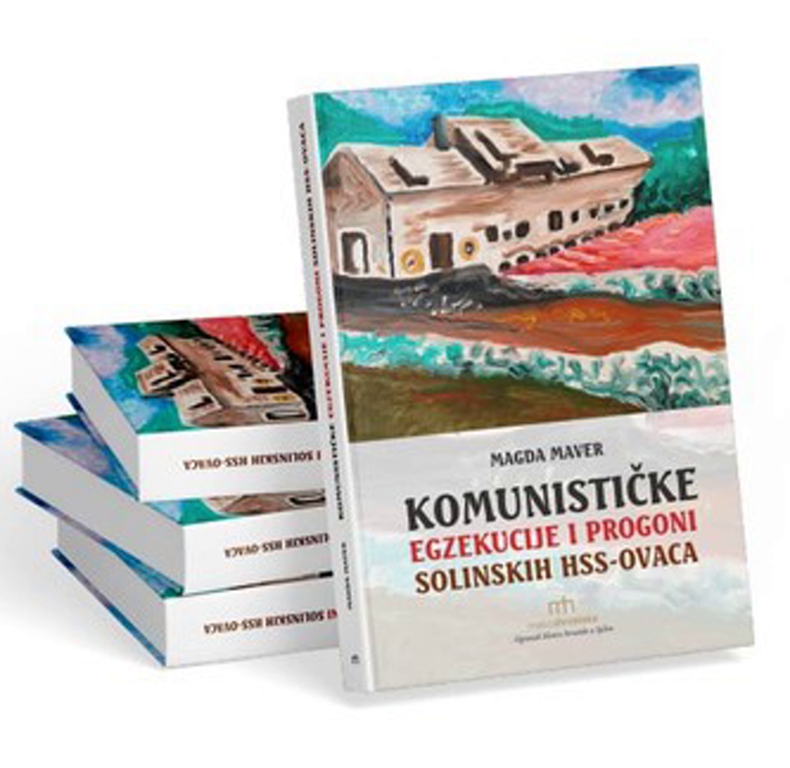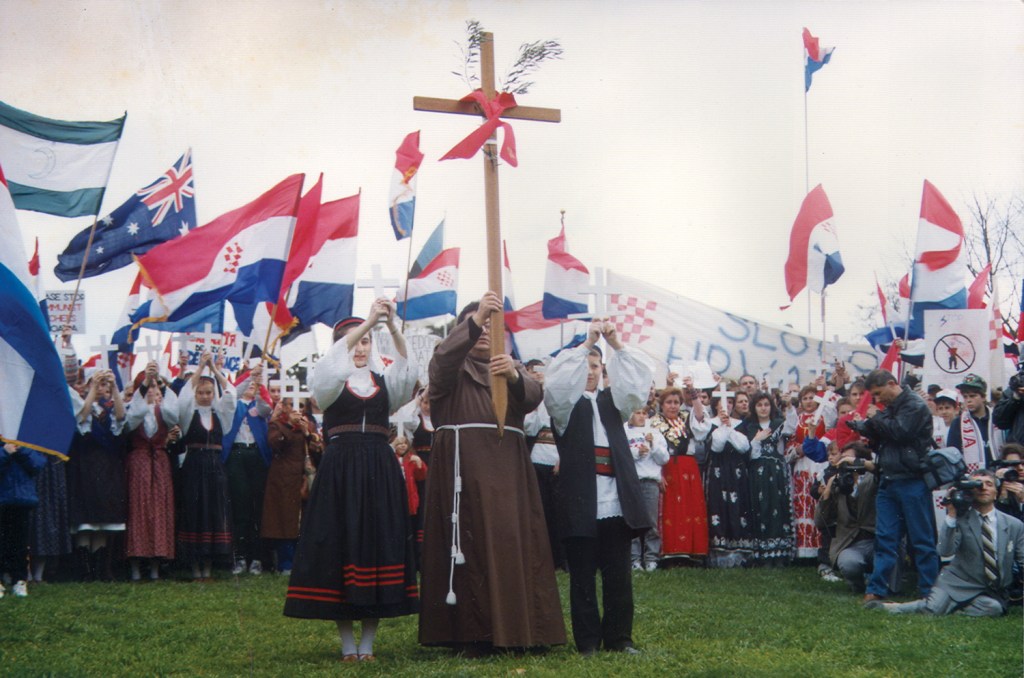
During the past month another public scandal broke out in Croatia and spread worldwide. Perhaps because Jasenovac Camp was established in Croatia, rather than in Serbia, where the extermination of Jews was the worst on the territory of Yugoslavia, after World War Two by communist Yugoslav authorities to commemorate victims of the Holocaust. The new scandal is related to the Jasenovac camp, that is, to the public institution of the Jasenovac Memorial Area (JUSP Jasenovac). Namely, the official website for the Jasenovac Memorial published some incorrect information again (before this incorrect publication the ones published included falsified victim lists where a number of victims listed as having been killed in the camp were found to be alive well after the war or had died elsewhere during the war). However, the promotion of lies against Croats and everything that happened in the WWII Independent State of Croatia/NDH was and remains an apparent “specialty” of the Yugoslav communists and their mercenaries. As this situation of discovering lies has started to happen more often in efforts to make it difficult for the truth to penetrate, the director of that institution, Ivo Pejaković, resigned from his position a couple of weeks ago due to various pressures and some other reasons.
“I would like to point out that according to the Statute of the Public Institution of the Jasenovac Memorial Area, the director is the responsible person responsible for the work of the institution, and therefore also for the texts that are on the website of the Jasenovac Memorial Area,” Pejaković pointed out. So, all you do is admit wrongdoing and run away from your responsibility and duty to correct it! Typical of those who established the Jasenovac memorial area after the Second World War, and typical of those who have headed it until now.
For this reason, Croatian Minister for Culture, Nina Obuljen Korzinek, has announced that an audit of the documentation of that public institution and all the information it has at its disposal and that it naturally makes available to the public as such will be carried out. “In agreement with the Administrative Council of Jasenovac Memorial Area, whose previous work the ministry appreciates and supports, a meeting of the Administrative Council was called for tomorrow, where further steps will be defined for the orderly functioning of the institution, but also for the elimination of observed factual inaccuracies in the content of the web pages and implement all legally prescribed measures to harmonise the administrative framework of the institution’s work,” said Minister Obuljen Korzinek on June 3, 2024.
So, how did this public scandal come about, you might ask? The CroFacta project deals with checking the accuracy of information (fact-checking) in the Croatian and wider media space and is carried out by the Miroslav Krleza Lexicographic Institute in cooperation with the Croatian Institute of History and the Croatian Homeland War Memorial Documentation Centre. It was launched on September 1, 2023, is fully financed by the European Union, and gathers renowned experts from the humanities and social fields who, as stated, “will primarily deal with controversial historical, cultural and social topics of the 19th and 20th centuries, which strongly polarize Croatian society, and are therefore of special public interest”.
As part of information accuracy verifying project CroFacta the first article on the issue was published last month (in May 2024). It was written by the renowned historian Vladimir Geiger from the Croatian Institute of History, who verified some claims found on the official website of the Public Institution of the Jasenovac Memorial Area and found that they – are not correct. These are claims according to which, at a meeting of representatives of the German Reich and the Independent State of Croatia/NDH in the German embassy in Zagreb on June 4, 1941, it was concluded that the “Serbian question” in the NDH should be resolved by “mass emigration of Serbs to Serbia, mass killings in the field and by deportation to concentration camps”. It is further claimed that at that meeting, the Nazis approved “the already taken measures by NDH authorities for the final solution of the Serbian question in the NDH”, and that the NDH authorities “at their own will” joined the resettlement plan, “committing to deport 30,000 more Serbs to Serbia than what it would accept Slovenes from the Third Reich”.
What is the truth? At that meeting, Geiger writes, which was chaired by the German MP Siegfried Kasche, and the representatives of the NDH led by the military commander and deputy head of state Slavko Kvaternik, they discussed the relocation of the population, i.e. the emigration of Slovenes from Carinthia and Styria, which were annexed by the Germans, to the NDH and Serbia, and the emigration of Serbs from NDH to Serbia. In doing so, the details of the resettlement were agreed upon, as well as the specified numbers (quotas) of emigrants or immigrants and the timeline of the resettlement. The resettlement of the population agreed to in this way was planned in three waves. The first wave was to be carried out by July 5, the second from July 10 to August 30, the third from September 15 to October 31, 1941, and the number of evicted Serbs from the NDH and the number of Slovenes immigrated to the NDH were to be reciprocal. They also discussed the treatment of Croats in the areas of the Kingdom of Yugoslavia that belonged to the German Reich.
Soon after, a meeting of the leaders of population resettlement project was held at the embassy of the German Reich, where the technical details of the resettlement were agreed upon. All this was preceded by Adolf Hitler’s approval for the relocation of the population, about which the German authorities in Zagreb were informed by telegram on May 25, 1941.
All of the above, writes Geiger, is confirmed by the original minutes of the meeting and its certified translations, which are kept in the Croatian State Archives in Zagreb. Also, on the same evening, Deputy Kasche informed the Ministry of Foreign Affairs of the German Reich in Berlin about the meeting in a detailed telegram, stating who was present, what was discussed and what was concluded about the relocation of Slovenes to the NDH and Serbs from the NDH to Serbia. The disputed claims published on the website of the Jasenovac Memorial Area are not a part of that telegram either.
Furthermore, the verdict of the Supreme Court of the People’s Republic of Croatia in Zagreb dated June 7, 1947 (“in the criminal case against the accused Kvaternik Slavko and others”), delivered to the representative of the German Reich in Zagreb, Siegfried Kasche, does not mention these claims.
In addition to all the inaccuracies (which should be labeled as lies because they are done on purpose) in the articles published on the web pages of Jasenovac Memorial Area/JUSP, Geiger particularly questions the use of the term “final solution” by the JUSP website in regards to 1941 event (German: georgliche Lösung, die Endlösung), because such a term was not even mentioned at the meeting, let alone that the Nazis approved “measures already taken earlier by the NDH authorities for the final solution of the Serbian issue in the NDH”. This actually refers to the Nazi “final solution of the Jewish question” (German: Endlösung der Judenfrage), agreed on January 20, 1942, at the Wannsee conference in Berlin, concludes Geiger in an article published on the CroFact online platform.
Anti Croatian propaganda of which there has been much may call this discovery by the term of revisionism in the negative sense and we may see new lies arise regarding NDH in months to come. The world has heard ad nauseam from those who make up history and blow-up numbers of victims of Jasenovac camp in WWII out of all reality. Among these we can find Croatia’s historian of communist Yugoslavia Ivo Goldstein, then Israel’s Gideon Greif and Efraim Zuroff etc., who especially attend to falsifying victim numbers to the ridiculous and impossible number that exceeds one million, even though the official numbers revolve around 83,000 and given the falsified victim lists now confirmed by historians, that number appears higher than what it may have been. To be clear, it is my view that even one victim of killings is one too many. There can be an entire army of such characters we are served with as historians, but they matter less and less because historical revisionism is hereby taking the shape and meaning of getting rid of lies and replacing them with historical facts. Plucking out the truth from the endless heaps of lies and warped imagination of some who claim to be historians but actually present history from personal political convictions or are paid even by governments to twist and embellish history with wild propositions or claims is indeed a painstaking job. As long as there is a will to pursue truth despite the obstacles we are on the right path. Ina Vukic









Leave a comment